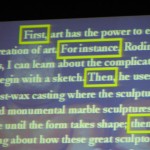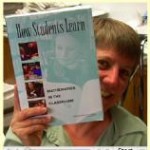This Toolkit
This Faculty Inquiry Toolkit is a resource from the SPECC Project (Strengthening Pre-collegiate Education in Community Colleges), sponsored by The Carnegie Foundation for the Advancement of Teaching and funded by The Hewlett Foundation
What do we mean by “Toolkit”?
We have developed this toolkit to serve two purposes:
- First, this toolkit serves as a stand alone resource that can be used as a guide to faculty inquiry, primarily as a portal to the Windows on Learning website developed through the SPECC project. The materials available on the toolkit outline a framework for faculty inquiry, along with voices of community college faculty talking about different aspects of the faculty inquiry cycle. This resource resides as an archival copy on the Carnegie Foundation website, along with other publications from the SPECC project.
- Second, this toolkit serves as a core resource around which a network of faculty collaborators could build their own community of practice. By creating this toolkit in a blog environment, the core resources can be built upon using a range of so-called “Web 2.0″ tools, such as posting, commenting, and tagging. The Faculty Inquiry Network (FIN) based at Chabot College is a first “proof of concept” for this toolkit, where they have imported these core resources and then built their community and insights around them.
An Example of a “Middle Space”
In this way, this toolkit is a prototype for what we might think of as one of many forms for a “middle space” between individual knowledge of teachers used for their own improvement and the published literature on learning and teaching practice (Bass and Bernstein, 2008). As the scholarship of teaching and learning–and its powerful expression through faculty inquiry–becomes more common and influential in higher education, it seems critical that we find ways to build mid-level communities of practice among faculty with shared questions about student learning. These communities should begin to make use of new digital tools that are designed for social learning, collaboration, and supple, multiple forms of sorting and tagging a community’s contributions.
The Next Stage in Knowledge Building
This toolkit, bulit with a social learning tool (the WordPress Blog software), represents the next logical step in the representation of pedagogical knowledge undertaken by the Carnegie Foundation over the past ten years, especially through the innovative KEEP Tool and the Knowledge Media Lab. Within the SPECC project, the KEEP tool was used as an experimental platform to create the Windows on Learning case studies that form the basis for much of the knowlege linked through this resource. Windows on Learning was an experiment in drawing together teams of successful faculty to make their practice visible through easy to read multimedia respresentations. The ability of individuals or teams to make their knowledge visible through a Web-based resource was a key piece of what some have called the “Open Education” movement (Iiyoshi and Kumar).
We hope that this toolkit can serve as a modest example and prototype for the logical next step in the larger effort to bridge the gap between individual faculty working to make their insights visible and the emerging social tools that enable communities of practitioners to generate knowledge through collective action and distributed intelligence.
SPECC Project, Carnegie Foundation
Randy Bass, Consulting Scholar, SPECC Project (editor/developer, Faculty Inquiry Toolkit).
August 20, 2008


